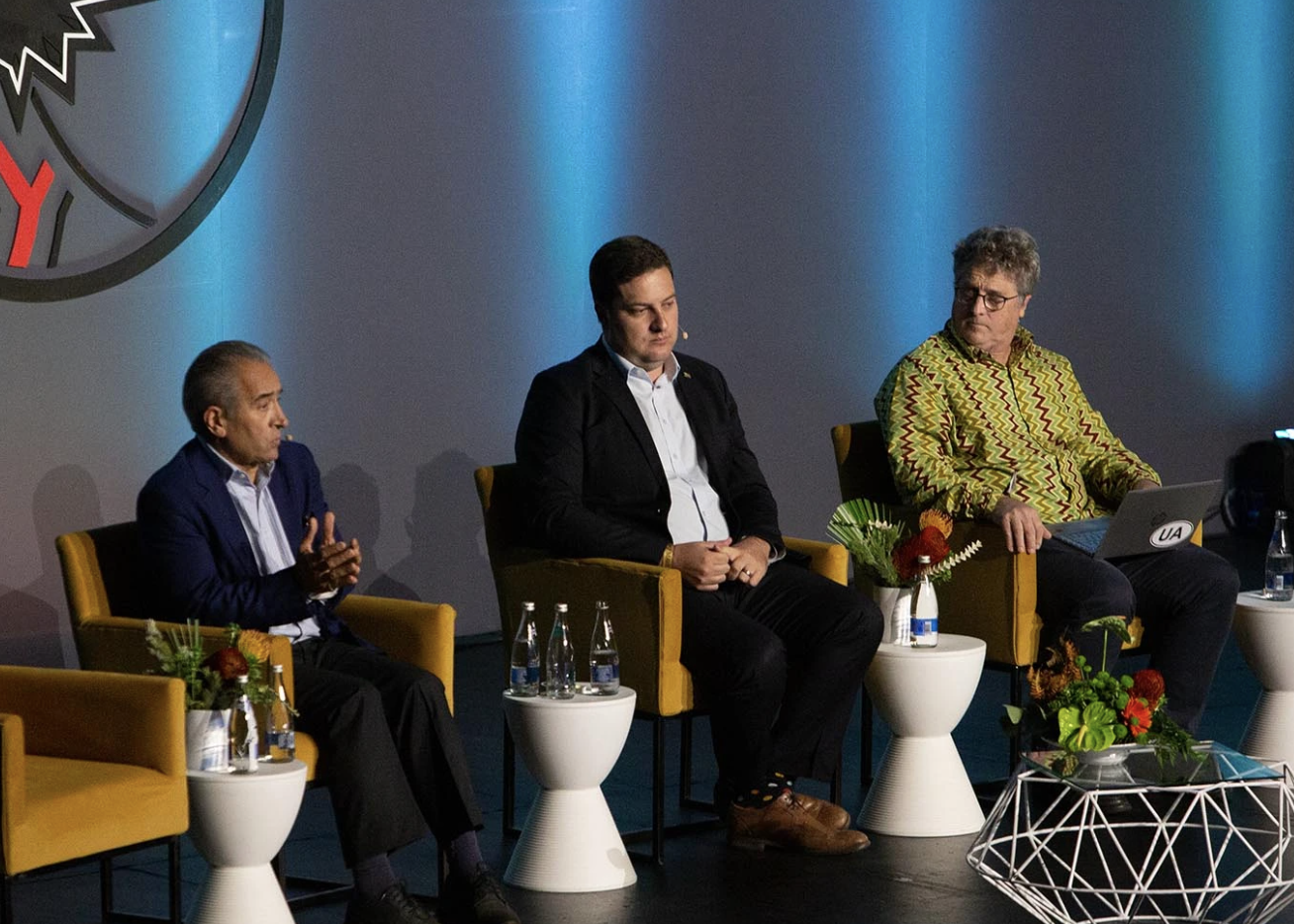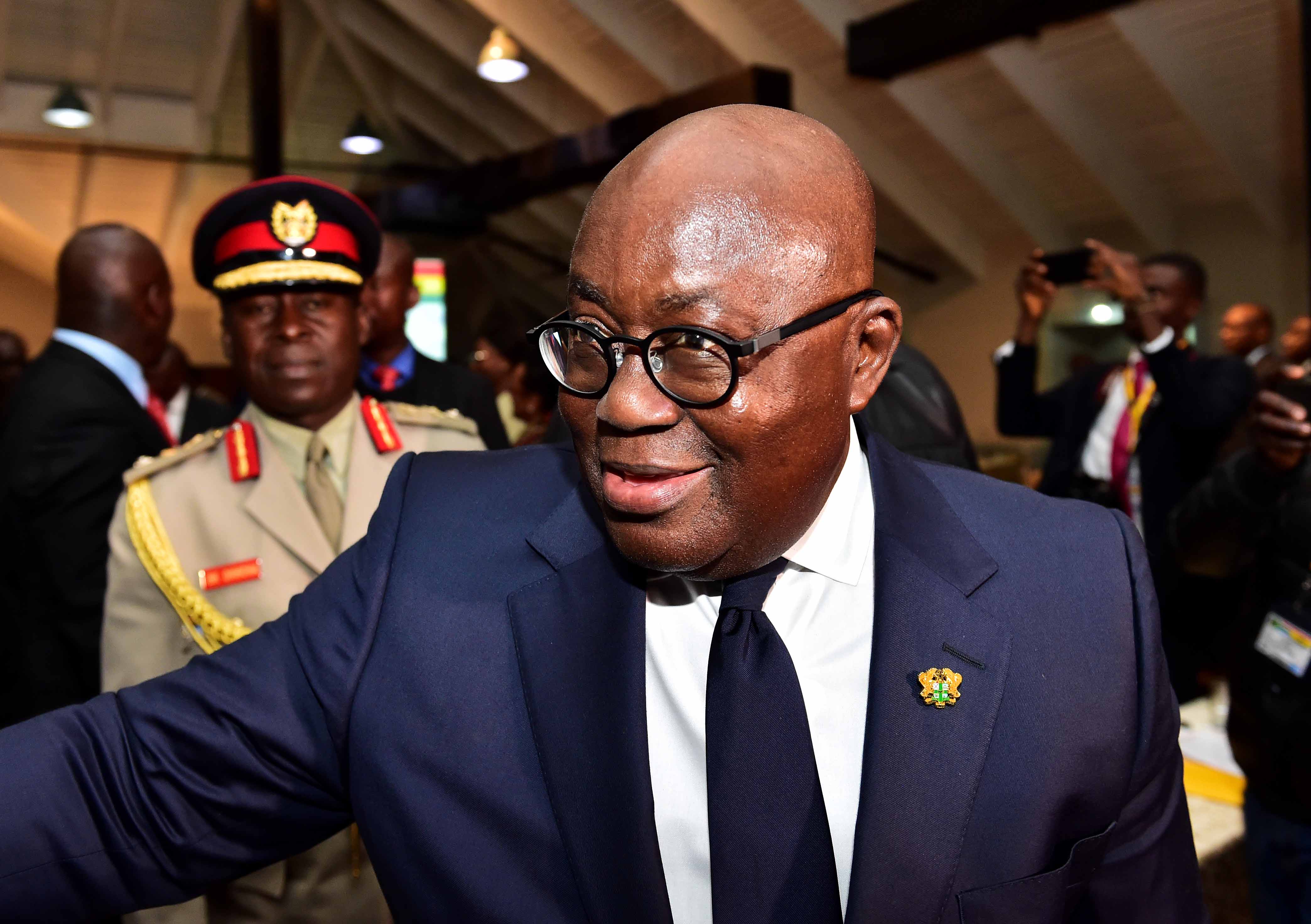News
Hope Springs — ‘With the Help of Technology, SA’s Energy Problems Could be Solved in a Year’
A renowned economist and the mayor of Cape Town outlined, at Daily Maverick’s The Gathering 2022, what they believe needs to be done to save South Africa.

As South Africa grapples with rolling blackouts, deteriorating infrastructure, water shortages and a sky-high unemployment rate, renowned economist Dr Iraj Abedian of Pan-African Investment & Research Services says it needs to push back and use the power of the people and the help of technology to tackle these issues.
He made the remarks on Thursday afternoon at Daily Maverick’s flagship event, The Gathering 2022, held at the Cape Town International Convention Centre.
Abedian was part of a panel titled Hope Springs, aimed at exploring solutions on what society can do to address head-on, practically, some of the issues it grapples with. With him on the panel, facilitated by Dr Greg Mills, the head of The Brenthurst Foundation, was Cape Town Mayor Geordin Hill-Lewis.
“We need to be practical, use the energy and the power of people. Globally, we know that governments are in crisis because the power has changed and politicians, with respect, they do not manage change. The change of power basis is very important and so is technology,” said Abedian.
Just transition
He spoke as South Africa is attempting a just transition which seeks to decarbonise the country by reforming the electricity sector, developing electric vehicles and expanding the green hydrogen sector over the next five years.
Abedian believes that with the help of technology, South Africa’s energy crisis can be resolved in a year.
“We need to push back, we need to take that power and solve our problems. With the help of technology, our energy problem could be solved, in my view, in less than a year,” said Abedian.
He pointed to the importance of cities standing on their own rather than relying on the national government to make decisions.
“If cities could, with immediate effect, go into different building rules and regulations … we can do it, we have got enough sun, water and railways, but we don’t embrace all of that.
“The same with our infrastructure. Cape Town is possibly the best city, but … the roads have been messed up five times by the same contractors, because the city doesn’t have standards for who fills the holes and at what point you don’t fix the holes but the entire roads — very simple, practical things.”
Asked by Mills if these problems could be attributed to the ruling ANC, Abedian said the rot had gone deeper and the lack of accountability did not make it any easier for these problems to be dealt with.
“Governments are unable to act, they have just gotten into the habit of meeting. Their KPI [key performance indicator] is how many meetings they’ve had, not how much they’ve delivered. The problem is no longer in the ANC and government; some businesses are also run like that, that’s how bad it’s got.”
‘Like swimming in a pool of peanut butter’
Hill-Lewis, who has been in office for a year, expressed similar sentiments about the time it takes to implement solutions to some, if not most, of the problems.
“Given the urgency of some of these things — load shedding, crime, rail, you name it — it does take really long to get things done, so that has been frustrating for me. It has probably moved too slowly for my liking, but with application you can push through — sometimes it feels like swimming through a pool of peanut butter, that’s as fast as you can go.”
To enable reform, Hill-Lewis believes that the governing ANC needs to be voted out of power or lose its majority in the 2024 national elections.
Coalitions
Following the November 2021 local government elections which saw the ANC losing electoral support after getting 47% of the vote and being relegated to opposition benches in several rich metros, including Johannesburg, Ekurhuleni and Tshwane, coalitions have been the order of the day.
Despite coalitions being unstable in some metros, including Johannesburg where there have been several motions of no confidence against Mayor Mpho Phalatse, Hill-Lewis was adamant coalitions were healthy for the future of South Africa.
“Whether the governing party likes it or not, the time of reckoning is coming because of the fact that they cannot fix the economy, cannot get people out of poverty, into work and opportunities, and really deliver … on that they will be eventually ejected from office or lose the majority, and that will be a profoundly healthy thing for the future of South Africa.”
Hill-Lewis said that even if the ANC gained the majority of votes in 2024, but as part of a coalition, it would learn hard lessons for failing to address the plight of voters.
This article originally appeared on the Daily Maverick
Photo: Leila Dougan


